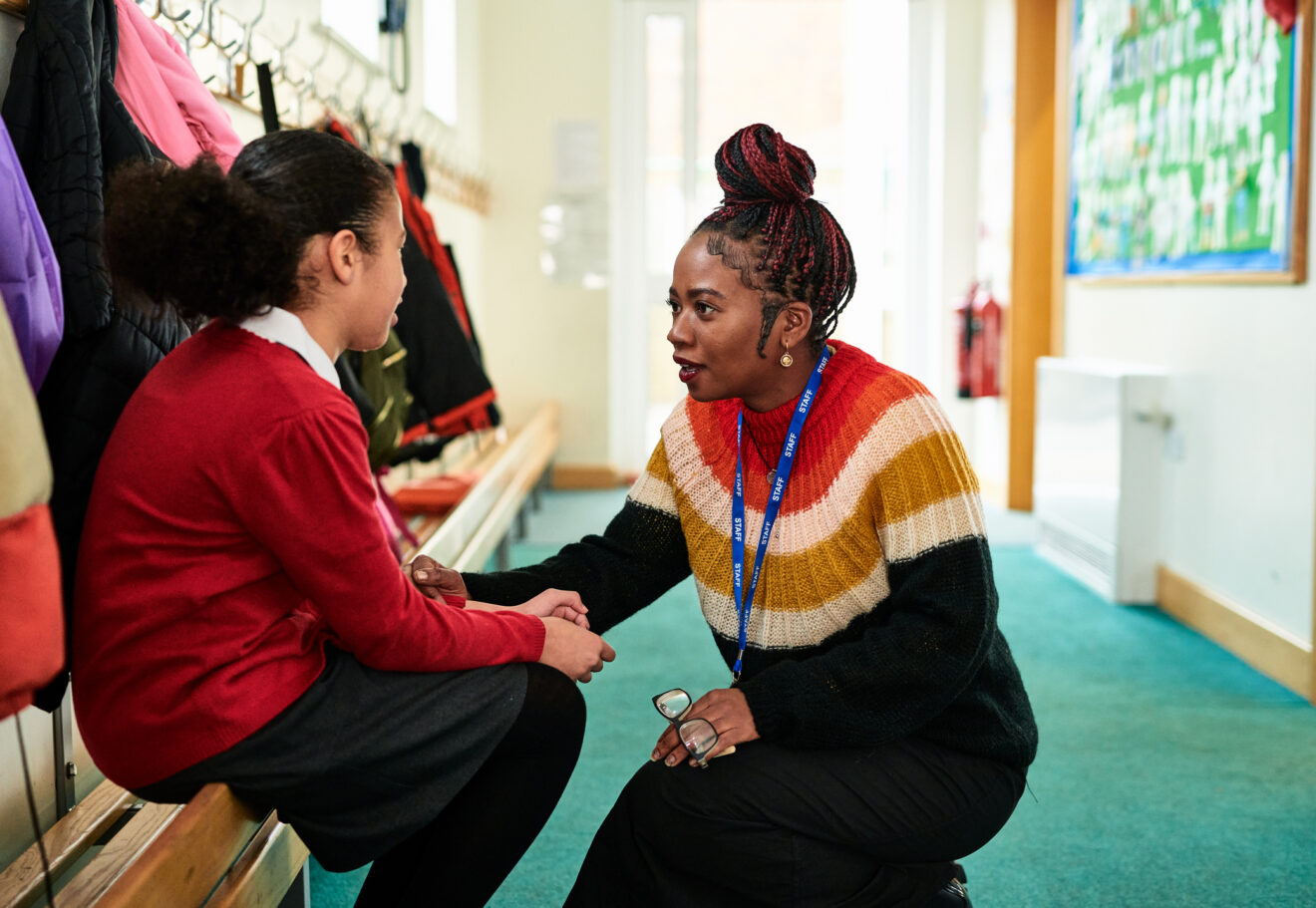Several years ago, there was a popular best-selling book entitled “Don’t Sweat the Small Stuff … and It’s All Small Stuff”. For educators getting ready for the start of the school year, the advice in the first part of the title is particularly apropos: Setting priorities from a long to-do list is a good way to ensure you are ready for your students.

Sometimes, however, the busy preparation for the school year makes it easy to forget the second part of that title: the small stuff. Because the small stuff doesn’t typically make it to a to-do list, it can be overlooked or forgotten.
What is this small stuff?
The small stuff can be simple, brief gestures and words embedded into the daily routines and interactions of the school environment that clearly convey to students that they belong, are cared for and valued. The small stuff can seem incidental or insignificant — but it’s anything but that.
The small stuff might be hard to notice at times, but students (and staff) can feel the difference between school environments with the small stuff and ones without the small stuff.
Belonging and acceptance are not just nice feelings for students to have; they are the prerequisite for learning. All students must feel like they belong and are accepted – most students can never feel that way enough. No student should feel left out or disconnected from the school.
Some students depend on small stuff for success
Who are these students? The ones who struggle to succeed, have few friends and might frequently get in trouble. They might speak a different language or are markedly different from their peers. These students could be new to the school and/or have lived a transient life.
And there are the students who need the small stuff for reasons we don’t know.
The small stuff, moreover, has the potential to resolve, what I feel, is one of the most perplexing problems in our schools, as illustrated by the following story:
Standing in front of a high school faculty, I posed the following: Raise your hand if you care for all the students in the school. Every hand went up. Then I posed the following: Raise your hand if you are sure that every student knows that. No hand went up.
This is what is perplexing: Students want and need to know that the people who educate them accept them and care for them, but they don’t know that they do. It is tragic. The care is already there; it doesn’t need to be created. It just needs to be communicated — not just once or occasionally, but every day.
Educators, therefore, shouldn’t just assume that all students know that they are cared for. The message can’t be absorbed by osmosis. Students won’t know they are cared for until it’s communicated to them with clear, direct words and tangible actions. In other words, they need a lot of small stuff from all the adults around them. The cliche “They won’t care about what you know until they know that you care” holds true particularly in schools.
Examples of the small stuff
Here is what I imagine students might say to their teachers when asked about the small stuff and its effect on them:
“Some of you remember and say our first names when you see us. Thank you for making us feel recognized and accepted.”
“Some of you greet us with a smile when we walk into the classroom. Thank you for letting us know that you are happy to help us learn.”
“Some of you say ‘please’, ‘thank you,’ ‘your welcome’ and ‘excuse me’ to us just like you do to people who are not students. Thank you for showing respect for us.”
“Some of you take the time to get to know us by checking in with us on a regular basis. Thank you for showing you care about how we are doing in school.”
“Some of you take the time to help us learn what we have in common with you and each other. Thank you for helping us develop positive relationships in our school.”
“Some of you admit your mistakes and are not afraid to say “I’m sorry” to your students. Thank you for letting us know that we, too, can make mistakes without shame.”
More examples of the small stuff
“Some of you, when we break a rule, don’t publicly correct us in front of other students. You do it privately. Thank you for not making us look bad in the eyes of our peers.”
“Some of you, in addition to telling us the rules, teach us about how we should treat one another. Most importantly, you practice what you preach and provide a positive example for how to treat others. Thanks for not just telling us what not to do, but teaching us how to do what is right.”
“Some of you, when we break a rule, do more than just provide a consequence; you help us understand why what we did it and give us ways for responding better in the future. Thank you for helping us learn better ways of solving our problems.”
“Some of you help us see that problems are opportunities for learning about life and share your own experiences with us. Thank you for giving us the confidence to accept problems and learn from them.”
“Some of you make sure that we know that you are always available should we ever have a problem. You let us know that you are always ready to listen to us. Thank you for helping us trust you when we need help.”
Still more examples of the small stuff
“Some of you try to discover and support our strengths and interests. Thank you for affirming us in a way not dependent upon academic performance alone.”
“Some of you want to know about our families and what is happening in our lives outside of school. Thank you for showing that you care about our whole life, not just our school life.”
“Some of you give us meaningful jobs to do in school. Thank you for letting us know that we can contribute to making our school a good place to be.”
“Some of you provide us with many opportunities to make a variety of appropriate and meaningful choices throughout the school day. Thank you for helping us take ownership of our learning.”
“Some of you explain to us the reasons for learning what is being taught to us. Thank you for helping us see that learning has meaning, purpose and relevance for our lives.”
After thanking some of the educators in their school, students might have one very legitimate question to ask: “If some can remember the small stuff, why can’t everyone?”
The small stuff as stated above can be better building blocks of a positive school culture and climate than any policy or program.
Just imagine what schools would be like if everyone decided to do the small stuff.
Jim Dillon has been an educator for over 40 years, including 20 years as a school administrator. He is the author of “The Peaceful School Bus,” “No Place for Bullying” and “Reframing Bullying Prevention To Build Stronger School Communities,” as well as children’s picture book “Okay Kevin” and “Using Stories for Professional Development.” Dillion is currently an educational consultant for New York State Center for School Safety.
Opinions expressed by SmartBrief contributors are their own.
_________________________
Subscribe to SmartBrief’s FREE email ASCD newsletter to see the latest hot topics in education. It’s among SmartBrief’s more than 250 industry-focused newsletters.
